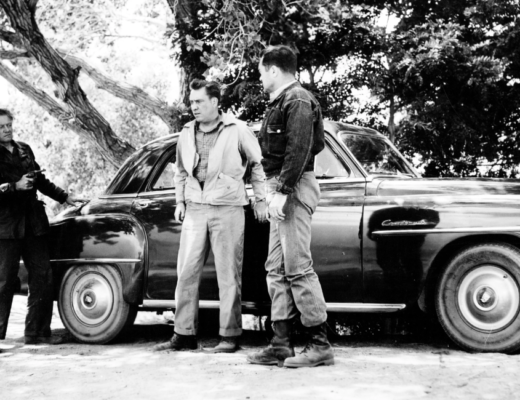In what can be construed both as commendation and criticism, Cristian Mungiu’s R.M.N. is assuredly a film of the times. Its contemporary grappling with hot-button issues, alongside its pointedly liminal geographic setting, enables a somewhat twofold diagnosis of political and ideological relationships, from the positions of both oppressor and oppressed, aggressor and defender. Instantly recognizable within Mungiu’s frames is his drab, brutal realism: the director of 2007’s Palme d’Or winner 4 Months, 3 Weeks and 2 Days has faithfully upheld his representational tradition of depicting both internal and generational trauma through the smoldering eye of unflinching static shots, and the centerpiece of R.M.N. is, predictably, one such sequence. Lasting over seventeen minutes, this sequence finds the inhabitants of a Transylvanian village congregated at a town hall meeting, airing their disputes over the fates of three Sri Lankan factory workers while the atmosphere within festers with conflict and hatred. As with most of Mungiu’s oeuvre, such a pivotal moment constitutes the film’s thesis — Romania is in a state of rot, and it might be too late to do anything about it.
R.M.N. begins elsewhere actually, in a German industrial town, where Matthias (Marin Grigore) tenders his resignation at a slaughterhouse by virtue of a headbutt to his racist foreman. He returns to his hometown, a vague, unnamed space occupied by ethnic Romanians and Hungarians, as well as German-speaking nationalities, where he attempts to reunite with his estranged wife Ana (Macrina Bârlădeanu) and son, Rudi (Mark Edward Blenyesi). It’s the Christmas season, so Matthias’ sudden and disheveled appearance only exacerbates the discomfort brimming around town when unexpected happenings — hitherto undisclosed — transpire in the neighboring forests. Little Rudi, upon sighting something on his way to school, refuses to speak for days. Matthias’ old lover, Csilla (Judith State), manages the bread factory which comes to the forefront of controversy after employing immigrants, the three aforementioned Sri Lankans included. Matthias and Csilla dance around the dying embers of their dead flame, him a little more enthusiastically than her; to her, he’s little more than the desperate remnants of a cultural masculinity washed away by time; she, conversely, stands for all that the new West embodies (wealth, comfort, good taste), desired and despised by those left behind in equal measure.
With formal restraint and symbolic penchant, Mungiu delineates a geography of ethnic and cultural anxiety through the relative microcosm of Matthias’ village, rendering the uneasy ground between the high heavens and low subalterns with an immediacy that’s at once tempered by the camera’s austere, almost detached gaze. The violence perpetrated by xenophobic sentiment is given both origin and outlet, and in R.M.N. we bear witness to the predictable laundry list of talking points that have, sadly, christened themselves as such: globalization, disenfranchisement, populism, liberalism, identity politics, and the like. That liberal ideals and socio-economic realities are frustratingly incompatible on the ground is accepted as the film’s starting premise, but Mungiu does not entirely launch into teleprompted agitprop in quick defense of either. Instead, there’s a veritable tension encoded into its confrontations and binaries between old and young, rich and poor, skilled and unskilled; a tension that can’t quite be shaken off, neither with sentimental appeal nor by statistical means.
A hanging, to vaguely introduce a spoiler, takes place, but its intentions and details are — even by the film’s denouement — not fully made known. In truth, the limits of social realism in general, and Mungiu’s in particular, serve as conditional strengths when displayed in full; to the director’s credit, little room is made for melodramatic aestheticization, and any of it’s arguably more a conditioned perception symptomatic of industrial capitalization in the wake of Trump and Brexit rather than the film’s own doing. There is, however, something wryly amusing about the apparent double entendre espoused by its title: R.M.N., wrongly attributed to Romania as its abbreviation (the actual shorthand is “RO”), also refers to “rezonanță magnetică nucleară,” the brain scan Matthias’ aging father undertakes amidst all the psychological tumult. For about two hours, R.M.N. embroils the viewer in this tumult, goading less knee-jerk outbursts than it inspires muted helplessness. Then, in the last five minutes, Mungiu indulges slightly in the surreal, with ambivalent results: there’s a sense of possible change and renewal, modulated by the deeper realization that the state of man mirrors the state of nature, and that, perhaps, there really might not be any way out after all.
Published as part of TIFF 2022 — Dispatch 3.







